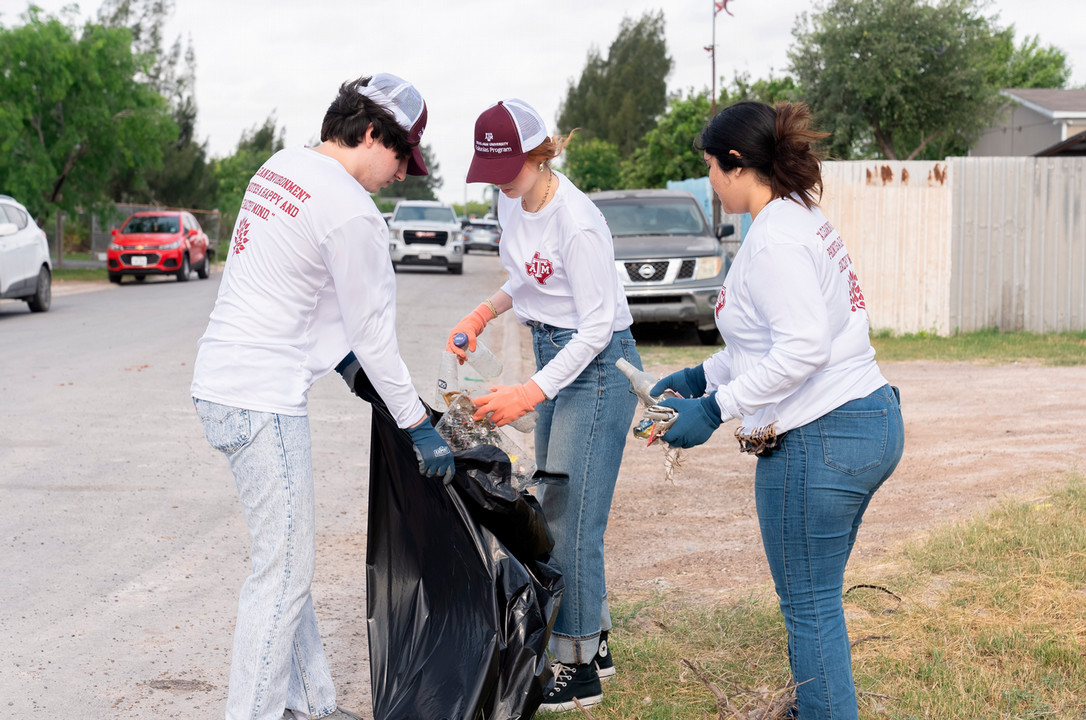
In early spring 2024, Texas A&M University Higher Education Center at McAllen (HECM) Public Health professor Dr. Krystal Flores-Chavez was awarded $5,000 from the HECM’s High Impact Teaching Grant to support a service-learning project for her Project Management in Public Health course.
She separated her students into two groups and awarded each team $2,500 to implement a “real world” project addressing mental health in a colonia in the Rio Grande Valley.
“I really wanted to create a fun, engaging course project where students could work collaboratively with community partners. The course uses high impact teaching methodologies in the form of service-learning pedagogy and collaborative projects. This type of learning is preferred as it provides students with the opportunity to actively apply concepts learned in the classroom to address a community identified need,” Flores-Chavez said. “Mental health was selected as the public health issue students would address based on information provided by focus groups conducted by the Texas A&M University Colonias Program. Their findings reflected residents’ desire for mental health services and increased awareness surrounding the issue.”
The teams collaborated with the Colonias Program and Puentes de Cristo to select the colonia community and launch their respective events. The organizations selected the South Tower Colonias in Alamo, Texas, and the La Piñata colonia in Donna, Texas, as the sites for the team projects.
In early April, the Donna team invited students of all majors at the HECM to volunteer and help clean a colonia. Students united to help create a cleaner, greener environment by picking up trash, assisting with minor landscaping and distributing freshly potted plants to residents. Each student wore a white shirt with the message: “A clean environment promotes a happy and healthy mind.”
Then last weekend, the Alamo team invited the community to attend a free Mental Health Awareness Fair at the Alamo Community Resource Center and Park for free services from local clinics and non-profit organizations. The students also partnered with Denise Martinez, a doctoral student and community health worker from the Texas A&M University School of Public Health in College Station to prepare a mental health-themed game of loteria (Bingo) and prizes for participants. The organizations at the community event included Nuestra Clinica Del Valle, South Texas Health Systems Clinics, South Texas Health Systems Behavioral, South Texas Research Institute, HOPE Family Health Center, Mujeres Unidas/Women Together, Puentes De Cristo and the Texas A&M Colonias Program.
Lesly Mata ‘25, one of Flores-Chavez’s students, assisted her team with the planning process and gathering the necessary tools to make the community clean-up a success. “We got to see concepts from the course reflected in real life along the way,” Mata said. “It was a very rewarding and valuable experience helping transform the residents’ neighborhood.”
Adamari De La Cerda ‘25 was also determined to help her team provide valuable mental health resources to colonia residents at the Mental Health Awareness Fair. “My team and I started working with local stakeholders and ultimately decided that hosting a community fair along with a loteria would allow us to personally connect with community members,” said De La Cerda. “We understand how pursuing mental well-being is often stigmatized to be a sign of 'weakness' that often forces one to avoid any sort of help. Our goal was to spread awareness about the importance of preserving mental health and destigmatize negative perceptions by personally connecting with community members and offering resources.”
Despite the heavy lifting needed for such projects, it can truly be a fulfilling experience for all involved. “Implementing service learning in courses is often difficult and very time-consuming for both faculty and students. It involves several steps and takes a considerable amount of effort. However, it is incredibly rewarding to be able to witness the growth experienced by students as they navigate the course and challenges associated with developing a ‘real world’ project. Witnessing students gain confidence in their abilities as future public health professionals is one of my favorite aspects of being a professor,” Flores-Chavez said.
